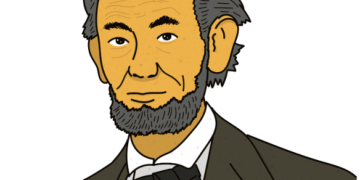By Michele Reger
Welcome to January! Doesn’t that mean it’s time to get started on your New Year’s resolution? By the way, now that you’re thinking about it, how did last year’s resolution go? Did you have a goal? Did you take action? Did you stick with it? If you’re reflecting positively on the past year, having succeeded in making a change or achieving a goal that you resolved to do a year ago, then maybe you can stop reading here and give yourself a genuine pat on the back. Congratulations! If your reflection is less than positive, read on as we explore why that might be.
Each new year, optimism about the possibilities ahead leads us to hope for powerful changes. We become caught up in the desire to improve our lives in some way, motivated by influence from the outer world or by guidance from an inner voice that prompts us to participate in the ritual of making a resolution. We state our goal. We start moving forward. We might even keep it up for several weeks. And then, somewhere along the way, our forward momentum slows, and we find it harder to persevere. Progress lags as our motivation wanes. Maybe a familiar inner voice starts telling us that we couldn’t do it anyway, or a well-meaning friend suggests that we’ve aimed too high, and, because it’s all starting to feel so hard, we take a break . . a long break . . .a really long break that we don’t stop taking. Can you relate? You’re not alone. Change is hard.

Licensed clinical psychologist Terri Blyo (Ellie Mental Health in Mendota Heights, Minnesota) notes that resolutions often fail because we’re thinking too big. She explains, “Where we go wrong with New Year’s resolutions is there’s this idea that it’s supposed to be some big, sweeping change . . . [But] as humans we’re not wired to make big, sweeping changes.” We’re better apt to create new habits–consistent patterns in our behavior–when we experience success in frequent mini-doses. According to John Larmour, MSc (The Neuroscience of Motivation: How Our Brains Drive Success, Linkedin), these smaller experiences of success fuel the release of dopamine, our feel-good hormone, in our brains, creating satisfaction and encouraging us to repeat the behavior in the future. Most of us set goals that are attainable, but we forget to consider the necessary and progressive steps that move us toward the big accomplishment we have imagined. A familiar idiom comes to mind . . . “How do you eat an elephant? One bite at a time.” I feel certain that none of us have resolved to eat an elephant this year, so let’s turn that elephant into “get in better shape.” That’s a fantastic goal! Yet, it’s a big, general goal that doesn’t prescribe your beneficial mini-doses of success. What if you think small rather than big? Make a list of the mini-goals you’ll achieve in increments that will keep your motivation going. Breaking the goal down into specific steps will make change easier and encourage more of that helpful dopamine. For instance, a resolution to take a walk five days a week leads to gentle stretching before that walk which leads to improving muscle strength by carrying hand weights while you walk. Each actionable step toward the bigger goal, each bite you take of the elephant, is moving you forward and affirming behaviors that will more easily become habits as you actually do get in better shape, one healthy dose of dopamine at a time.
So, this year, let’s not ask, “What’s your New Year’s resolution?” Instead, let’s ask, “What’s your elephant?” If your big, general goal is to exercise more, sleep better, reduce stress, or experience more joy, start by thinking small and specific. What’s the first bite you’ll take?





























